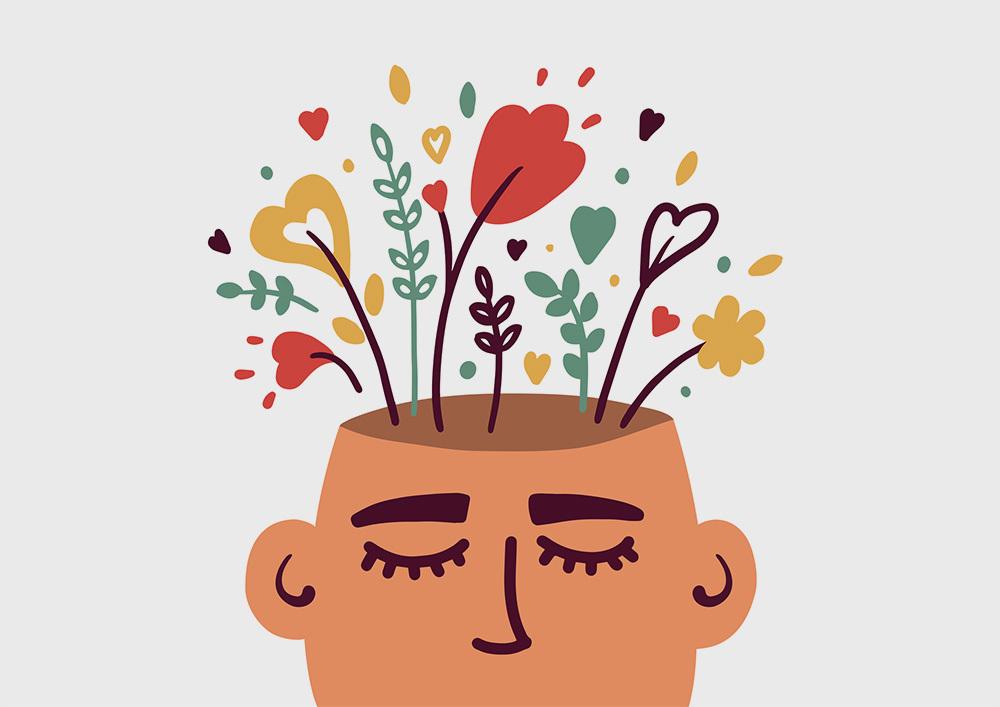A 10-year-old starts crying every night before school, terrified he’ll get something wrong and disappoint his teacher. A teenager avoids lunch hour because her “friends” mock the way she speaks. A high-achieving student stares at his homework for hours, paralyzed by perfectionism. A young adult struggles to focus at work after the sudden loss of a parent. A mother of three wakes up at 3AM with racing thoughts she can’t control. A retired man, since his wife passed, finds himself unable to sleep — and increasingly unable to explain why he feels so flat.
These are not rare or extreme situations. They’re daily realities for people across all life stages, and they reflect just how diverse — and deeply human — our mental health challenges can be.
Here are just some of the real-world challenges our clients bring to therapy — and how virtual care is making it easier to access the help they need.
Anxiety, worry, and stress that won’t let go
From kids afraid to speak in class to adults who lie awake listing worst-case scenarios, anxiety shows up in many forms. It might look like stomachaches before school, overpreparing for every work meeting, or snapping at family members without knowing why.
In therapy, we help clients understand their anxiety’s roots and triggers, and we teach tools to reduce its impact — through techniques like CBT, mindfulness, and exposure work, adapted to each age.
Low mood and depression that dulls everything
For children and teens, depression may not always appear as sadness — it often looks like irritability, boredom, or withdrawing from activities they used to enjoy. Adults may describe it as feeling “numb” or like they’re moving through molasses.
Online therapy helps uncover what’s beneath the surface and build motivation and hope, even when energy is low. Structured sessions can explore thought patterns, body-mind connection, and values-based action, helping clients gradually reconnect with what matters.
Big emotions, small tools: learning emotional regulation
Whether it’s a six-year-old having meltdowns over homework or a teen who swings from joy to rage in minutes, difficulty regulating emotions is common — and exhausting for both the individual and their loved ones.
Through online therapy, we teach concrete, age-appropriate strategies for identifying emotions, understanding their purpose, and responding instead of reacting. This includes calming techniques, communication skills, and practices that build tolerance for distress.
Challenges with friendships, peer pressure, and belonging
Social stress can be quietly devastating, especially for young people. A child who feels left out at recess, a teen caught between friend groups, or a university student questioning their self-worth after being excluded — these experiences cut deep.
Therapy provides a safe space to process relational hurt and build assertiveness, empathy, and healthy boundaries. We help clients navigate the delicate dynamics of human connection with self-awareness and confidence. Discover how working with an online psychologist in Ontario or Quebec can help you or your loved ones move from surviving to thriving — one step, and one session, at a time. At Leon Psychology Clinic, we understand that real-life mental health is rarely one-size-fits-all.

Bullying and intimidation — online and off
Whether it’s name-calling at school, harassment in a group chat, or subtle exclusion, bullying leaves lasting emotional scars. It erodes self-esteem and can lead to anxiety, avoidance, and even trauma symptoms.
Our therapists support children and teens in reclaiming their voice, understanding their rights, and developing internal resilience while also working with parents on response strategies.
Low self-esteem and inner criticism
Many clients — from kids to professionals — carry a harsh inner voice that says “you’re not good enough.” Whether it stems from past criticism, perfectionism, or social comparison, this narrative weighs heavily.
In therapy, we challenge those beliefs and explore self-worth beyond performance, cultivating compassion and developing a more balanced inner dialogue.
School struggles and academic overwhelm
For students, school is a full-time job — and sometimes, the pressure is relentless. A child may be struggling to read, a teen might be failing math despite hours of effort, or a high-achiever may spiral into panic over every grade.
Our work includes helping clients develop executive function skills, manage test anxiety, and redefine what success actually means in the context of their goals, not just school expectations.
Perfectionism and performance anxiety
“Nothing I do is ever enough.” This mindset shows up in youth, young adults, and working professionals alike. It’s driven by fear of failure, not ambition — and it leads to burnout, procrastination, and self-sabotage.
Therapy helps untangle these patterns, offering tools to set realistic expectations, embrace imperfection, and succeed sustainably — not anxiously.
Attention, focus, memory, and organization issues
From a child bouncing between tasks to an adult constantly losing track of deadlines, attention challenges (including ADHD) impact daily life across the lifespan.
We offer strategies for executive function support, whether through coaching, CBT techniques, or systems that simplify planning and follow-through — helping clients regain a sense of control.
Loss, grief, and life after
Grief isn’t just about death — it’s about any meaningful loss: friendships, identity, routine, health. It affects mood, concentration, sleep, and even our sense of purpose.
Through online therapy, clients explore their grief in a way that’s gentle, non-rushed, and profoundly validating. It’s a space to mourn, reflect, and eventually, reengage with life in a new way.

Trauma and its ripple effects
Whether it’s a single event or a series of small harms, trauma rewires the nervous system. It can lead to hypervigilance, numbness, mood swings, or avoidance. Sometimes it hides under physical symptoms or “overreactions.”
Our trauma-informed approach offers stabilization and recovery, using evidence-based tools like CBT, grounding techniques, and gradual exposure — always at the pace the client is ready for.
Sleep struggles and exhaustion
When sleep is disrupted — whether due to stress, anxiety, or physiological patterns — every part of life suffers. Kids may resist bedtime, teens may stay up all night doom-scrolling, and adults may toss and turn with racing thoughts.
Therapy addresses the roots of insomnia, nightmares, or bedtime anxiety, using behavioural sleep strategies, calming routines, and thought restructuring to rebuild restorative rest.
Virtual therapy that meets you where you are
At Leon Psychology Clinic, we don’t just offer sessions — we offer support that’s flexible, confidential, bilingual, and tailored to your needs. Whether you’re a parent seeking help for your child, a teen navigating identity and pressure, or an adult trying to manage overwhelm, our team is here — online, but fully present.
